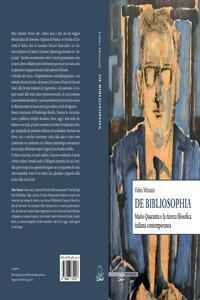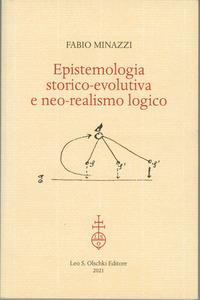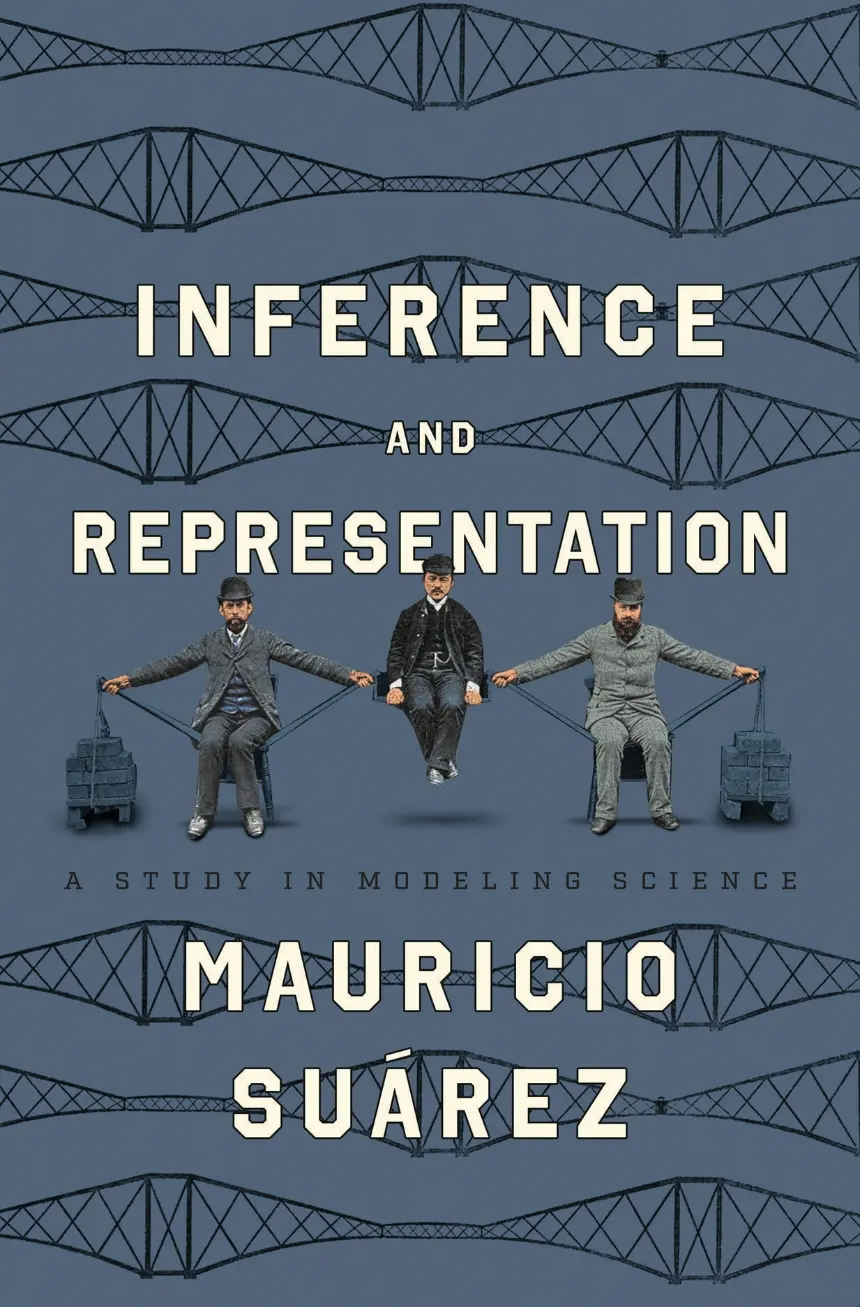
Mauricio Suárez: Inference and Representation
A Study in Modeling Science
Mauricio Suárez develops a conception of representation that delivers a compelling account of modeling practice. He begins by discussing the history and methodology of model building, charting the emergence of what he calls the modeling attitude, a nineteenth-century and fin de siècle development. Prominent cases of models, both historical and contemporary, are used as benchmarks for the accounts of representation considered throughout the book. After arguing against reductive naturalist theories of scientific representation, Suárez sets out his own account: a case for pluralism regarding the means of representation and minimalism regarding its constituents. He shows that scientists employ a variety of modeling relations in their representational practice—which helps them to assess the accuracy of their representations—while demonstrating that there is nothing metaphysically deep about the constituent relation that encompasses all these diverse means.
The book also probes the broad implications of Suárez’s inferential conception outside scientific modeling itself, covering analogies with debates about artistic representation and philosophical thought over the past several decades.
Published in 2024
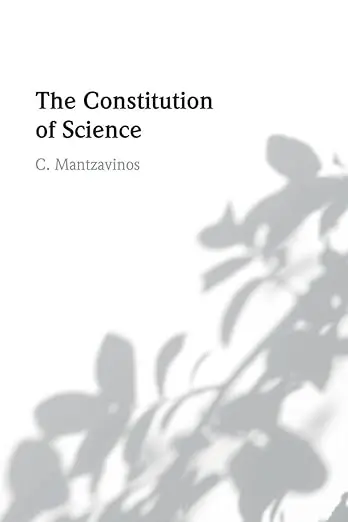
Chrysostomos Mantzavinos:
The Constitution of Science
How can science be protected, by whom and at what level? If science is valued positively as the incubator of the most successful solutions to representational problems of reality as well as the basis of the most effective interventions in the natural and social world, then its constitutional foundations must be protected. This book develops a specific normative outlook on science by introducing the idea of a 'Constitution of Science'. Scientific activities are special kinds of epistemic problem-solving activities unfolding in an institutional context. The scientific enterprise is a social process unfolding within an intricate institutional framework that structures the daily activities of scientists and shapes their outcomes. Those institutions of science which are of the highest generality make up the 'Constitution of Science' and are of fundamental importance for channelling the scientific process effectively.
Published in 2024
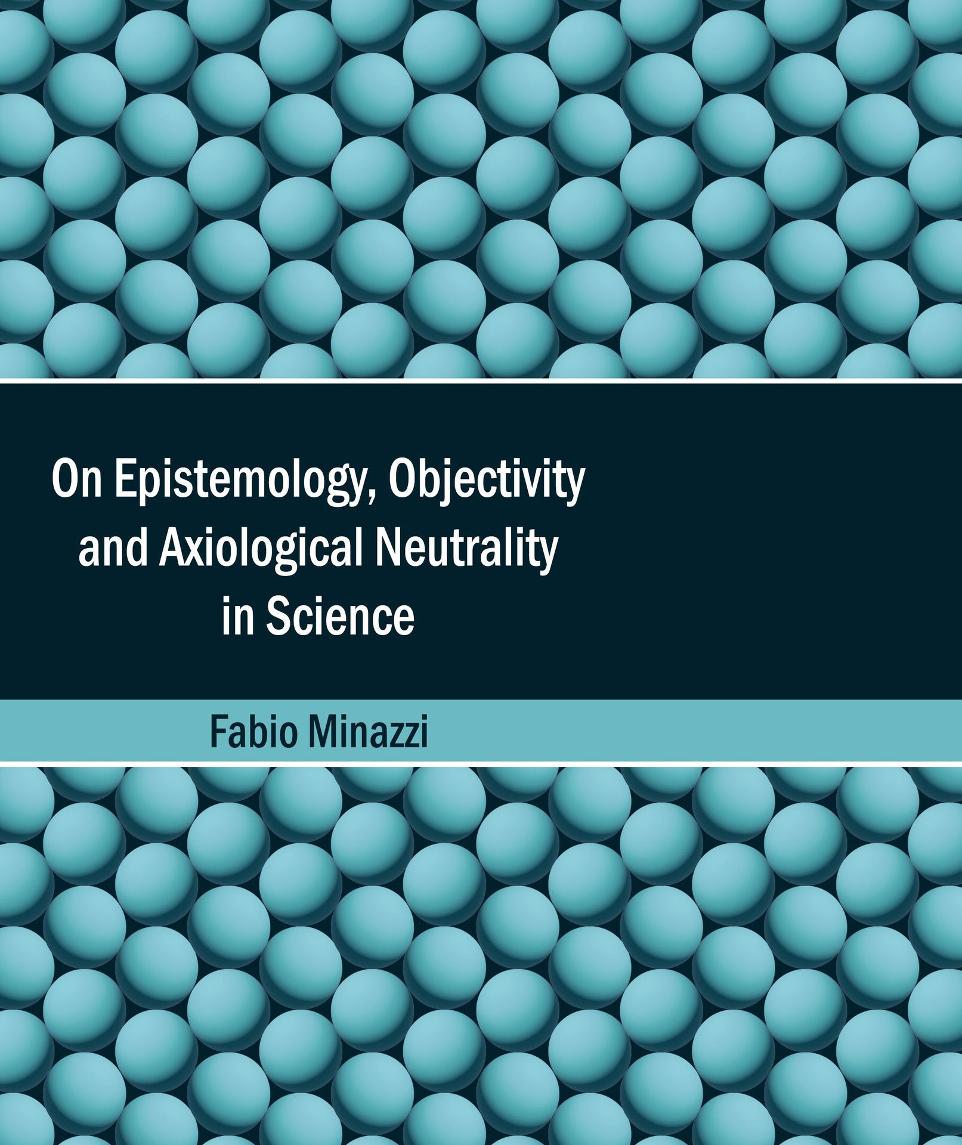
Fabio Minazzi:
On Epistemology, Objectivity and Axiological Neutrality in Science
This book seeks to critically overcome the traditional dichotomy introduced by the empiricist tradition between knowledge and values. To do so, it refers to the composite tradition of European critical rationalism inaugurated by Kant and matured with the lesson of Husserl's phenomenology.
The book illustrates a normativist and transcendentalist conception of knowledge, showing its value
as well as its limits. The book is addressed to scholars, teachers and people interested in developing a new image of scientific knowledge without forgetting the role and importance of axiology for the life of all people.
Published in 2023

Fabio Minazzi:
Historical Epistemology and European Philosophy of Science
This book offers a comprehensive analysis of the evolution of the philosophy of science, with a focus on the 20th century European tradition. At first, it shows how the epistemological problem of the objectivity of knowledge and axiomatic knowledge have been previously addressed by transcendentalism, critical rationalism and hermeneutics. In turn, it analyses the axiological dimension of scientific research, moving from the traditional model of science and scientific methods to the construction of a new image of knowledge that draws on the philosophical tradition of the Milanese School. Using this historical-epistemological approach, the author rethinks the
Kantian transcendental, showing how it could be better integrated into the current philosophy of
science, to answer important questions such as the relationship between science and history,
scientific and social perspectives, and philosophy and technology, among others. Not only does this
book provide a comprehensive study of the evolution of European philosophy of science in the twentieth century, but it also offers a novel historical and epistemological approach that could be used to answer many pressing questions in contemporary societies.
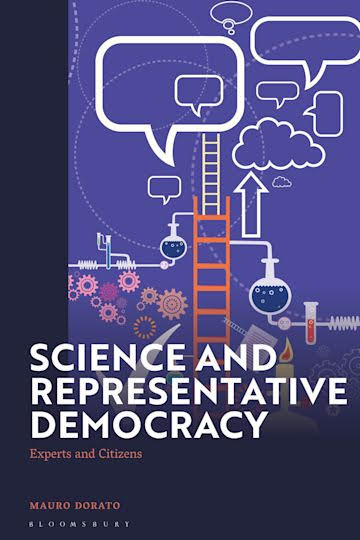
Mauro Dorato:
Science and Representative Democracy
This enlarged English-language translation of Disinformazione Scientifica e Democrazia, Cortina, Milan, argues that the advancement of science depends on an exponential process of specialization, accompanied by the creation of technical languages that are less and less accessible to the general public. The book reveals how such a process must align with representative forms of democracies, in which knowledge and decision-making are pyramided in terms of the general interest. Despite being based on the principle of competence, the role of experts as mediators of scientific knowledge threatens the autonomy of the citizen and calls for new ways to increase the level of literacy about science and its philosophical and probabilistic foundations, thereby avoiding the risks of technocracies. Using an opposition between pluralism and conformism, Science and Representative Democracy reveals the obstacles to the functioning of both science and democracy.
Published in 2023
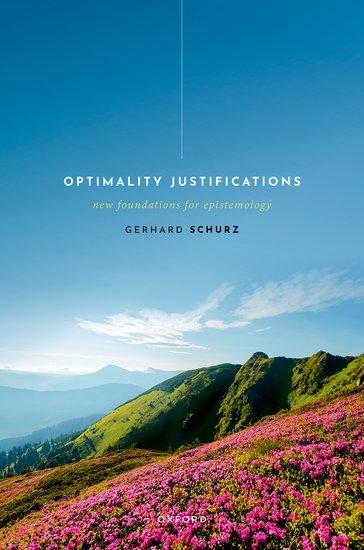
Gerhard Schurz:
Optimality Justifications
New Foundations for Epistemology
The leading idea of epistemology in the enlightenment tradition was foundation-theoretic: to reach knowledge we must not legitimize our beliefs by external authorities, but justify them by rational arguments. Presently the foundation-theoretic ideal of justification has come under attack, the chief criticism being that been that its universal standards of justification are illusionary because the justificational regress problem is unsolvable. Alternatives to foundation-theoretic epistemology such as coherentism, externalism or dogmatism have been developed that give up central claims of enlightenment epistemology such empirical support, cognitive accessibility or rational justifiability.
In this book Gerhard Schurz develops a new account of foundation-theoretic epistemology based on the method of optimality justifications. Optimality justifications offer a solution to the regress problem. Rather than striving for a priori demonstrations of reliability, which are impossible, they show
that certain epistemic methods are optimal in regard to all accessible alternatives, which is more modestly but provably possible. In particular, optimality
justifications can achieve a non-circular justification of deductive, inductive and abductive reasoning. All in all this book pursues two goals: a general renewal of foundation-theoretic epistemology based on the account of optimality justifications, and the advancement of methods of optimality justification in important domains of epistemology and philosophy of science, logic and cognition. Connected with these two goals is the aspiration of this book to develop new ideas for mainstream epistemology as well as for formal epistemology, philosophy of science and cognitive science, intended to attract researchers, students and all other readers interested in these fields.
Published in 2024
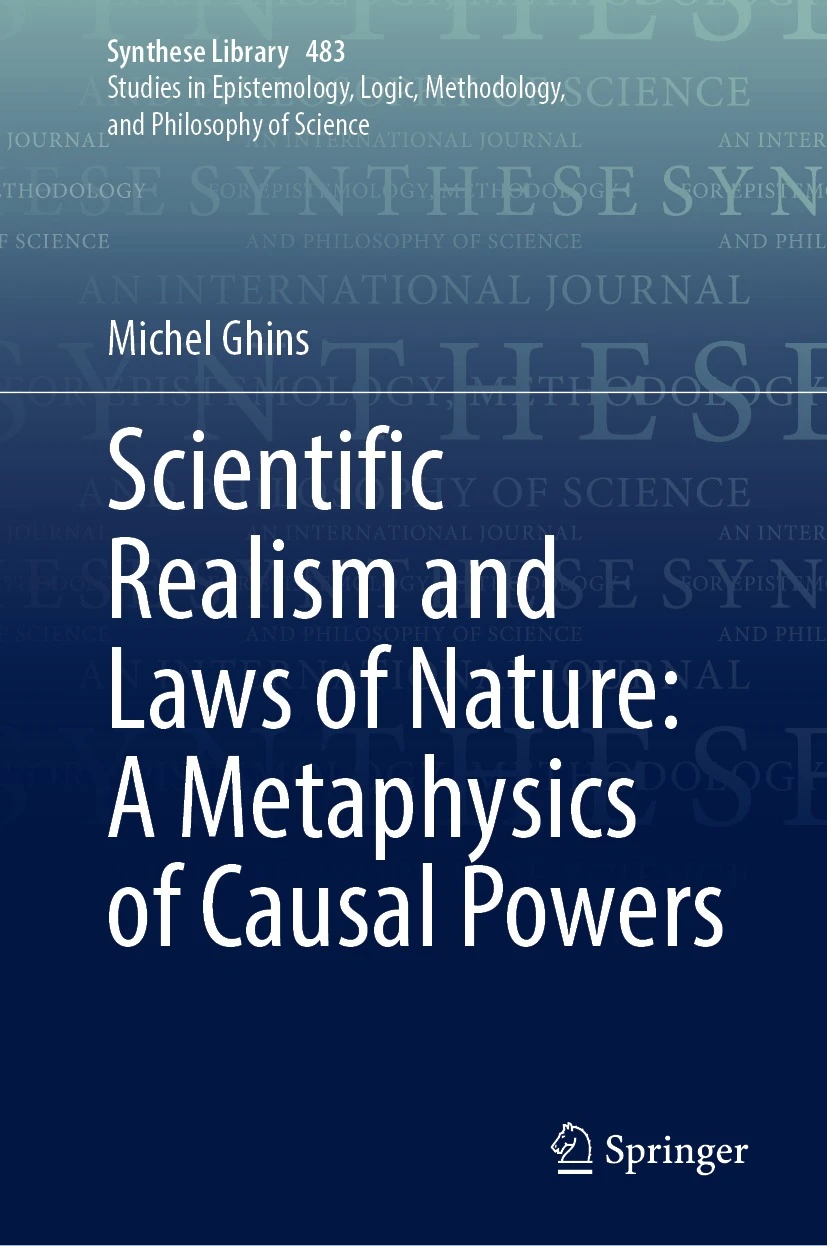
Michel Ghins:
Scientific Realism and Laws of Nature:
A Metaphysics of Causal Powers
This book addresses central issues in the philosophy and metaphysics of science, namely
the nature of scientific theories, their partial truth, and the necessity of scientific laws within a moderate realist and empiricist perspective. Accordingly, good arguments in favour of the existence of unobservable entities postulated by our best theories, such as electrons, must be inductively grounded on perceptual experience and not their explanatory power as most defenders of scientific realism claim. Similarly, belief in the reality of dispositions such as causal powers which ground the natural necessity of scientific laws must be based on experience. Hence, this book offers a synthetic presentation of an original metaphysics of science, namely a metaphysics of properties, both categorical and dispositional, while at the same time opposing strong versions of necessitarism according to which laws are true in all possible worlds.
The main theses and arguments are clearly presented in a non-technical way. Thus, on top of being of interest to the specialists of the topics discussed, it is also useful as a textbook in courses for third year and more advanced university students.
Published in 2024.
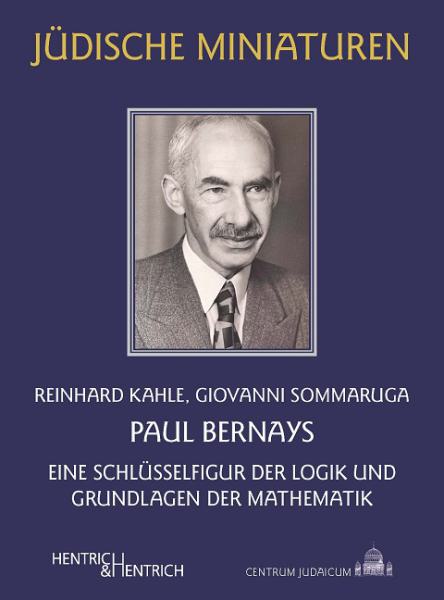
Reinhard Kahle, Giovanni, Sommaruga -
Paul Bernays
Paul Bernays (1888–1977) belonged to a well-known German-Jewish family, tracing back to the Hamburg Chief Rabbi Isaak Bernays (1792–1848). As a collaborator of David Hilbert, one of the most significant mathematicians of his time, he made fundamental contributions to mathematical logic. Possessing Swiss citizenship, he found refuge in Zurich after his dismissal in Göttingen in 1933. This volume traces Bernays’ life, which was influenced not only by mathematics and logic but also by music and philosophy. His scientific career exemplifies the complexities of the 20th century. However, the modesty, kindness, and humanity of Paul Bernays stand in stark contrast to his times.
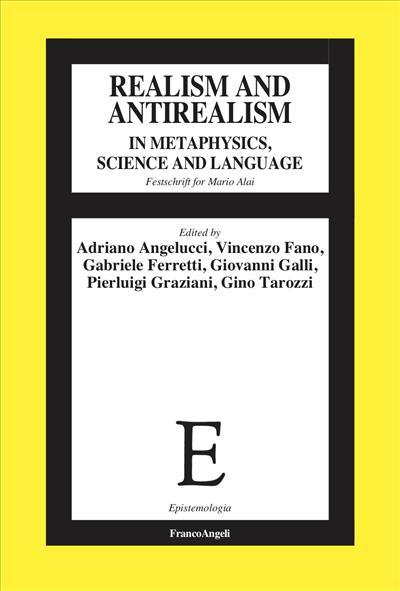
Realism and antirealism in metaphysics, science and language
Festschrift for Mario Alai
The book includes several essays written by prominent contemporary philosophers as well as by younger researchers in honor of Mario Alai on the occasion of his 70th birthday. The single original contributions delve into different foundational issues in the philosophy of science, epistemology, philosophy of language, and metaphysics, and engage in rigorous analyses of the structure and workings of different forms of human knowledge. This fruitful variety of perspectives reflects the wide-ranging and multifaceted character of Mario Alai's philosophical work and interests. The book also includes an extensive reply written by Alai himself, which amply testifies to his lifelong commitment to passionate yet fair-minded philosophical debate.
Published in 2024

Axiomatic Thinking II
Editors: Fernando Ferreira, Reinhard Kahle, Giovanni Sommaruga
These two volumes on Hilbert’s Axiomatic Thinking (Axiomatisches Denken) published by Springer contains papers of Evandro Agazzi, José Ferreiros, Reinhard Kahle, Jean Petitot, Wolfram Pohlers, Michael Rathjen, Wilfried Sieg and Paul Weingartner, delivered on the 2017 meeting of the Académie Internationale de Philosophie des Sciences, organized by Reinhard Kahle in cooperation with the Academia das Ciéncias de Lisboa and Faculdade de Ciéncias e Tecnologia da Universidade Nova de Lisboa in Lisbon (October 11-14, 2017). The volumes also include contributions originated from a joint meeting of the Swiss Mathematical Society and the Swiss Society for Logic and Philosophy of Science, held on September 14-15, 2017 on the same topic at Zurich University.
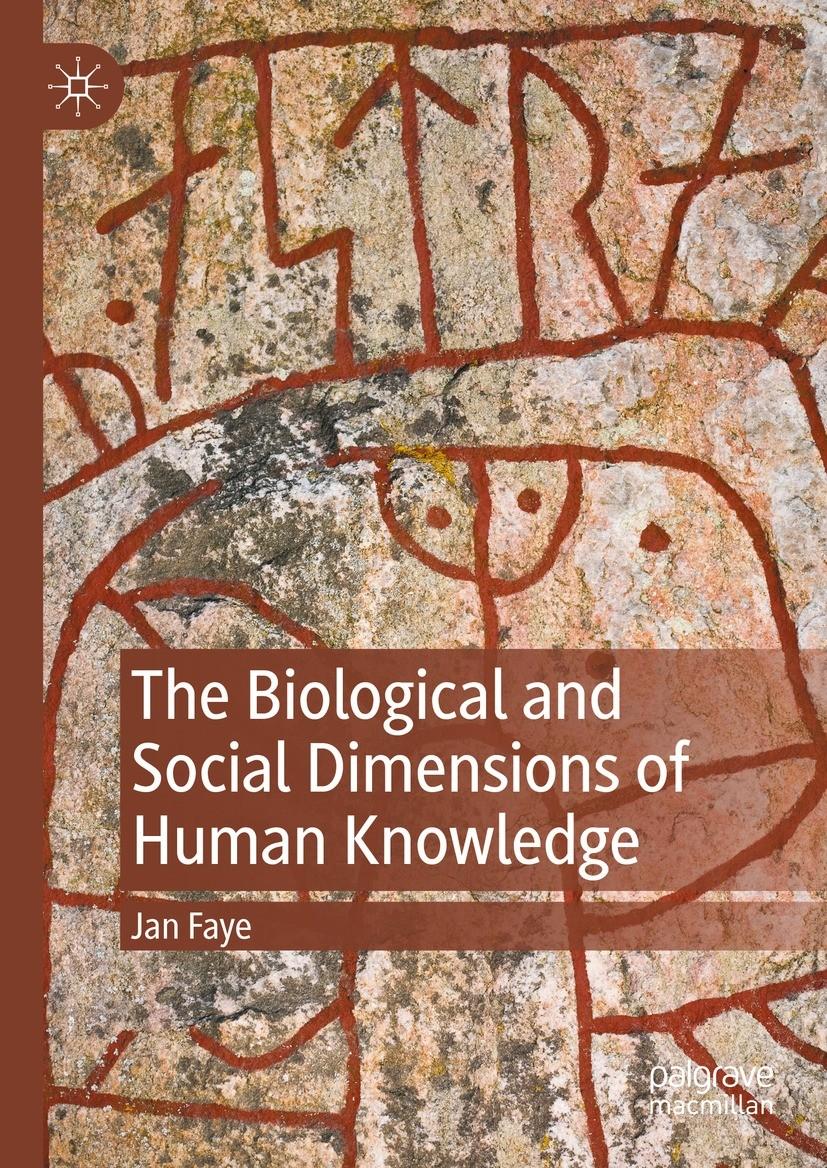
Jan Faye: The Biological and Social Dimensions of Human Knowledge
The purpose of this book is to demonstrate that natural selection has adapted human sense impressions to deliver reliable information without meeting the traditional commitments for having knowledge. In connection with memory, sensory and bodily information provides an animal with experiential knowledge. Experiential knowledge helps an animal to navigate its environment. Moreover, experiential knowledge has different functions depending on whether the deliverance of information stems from the organism’s external or internal senses.
Published in 2023.
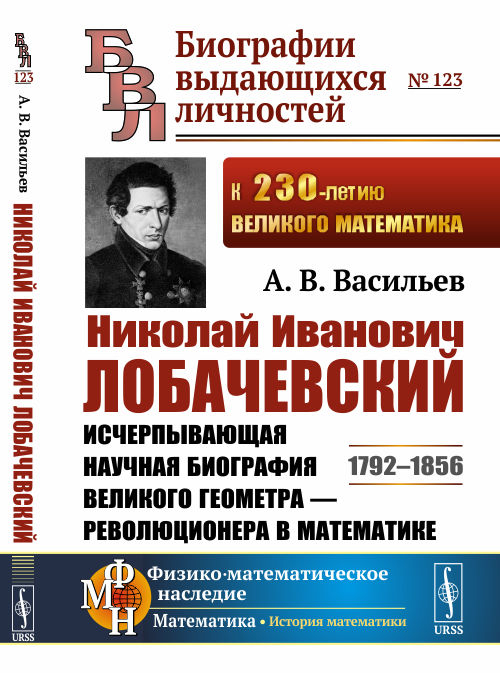
Valentin Bazhanov: A.V. Vasiliev. Nikolai I. Lobachevsky (1792 - 1856).
This book is the most complete scientific biography of N.I. Lobachevsky, which was prepared for thirty years by the prominent Russian mathematician A.V. Vasiliev (1853-1929). Its circulation was completely destroyed by the Soviet censorship in 1927. The proofreading miraculously preserved. It was found in 1990, which made it possible to recreate this book. It describes Lobachevsky's life and scientific work: his discovery of non-Euclidean geometry, his work in analysis, applied mathematics, and astronomy. His interests in philosophy, logic, pedagogy, as well as his activities as rector of Kazan University discussed.
Published in 2023
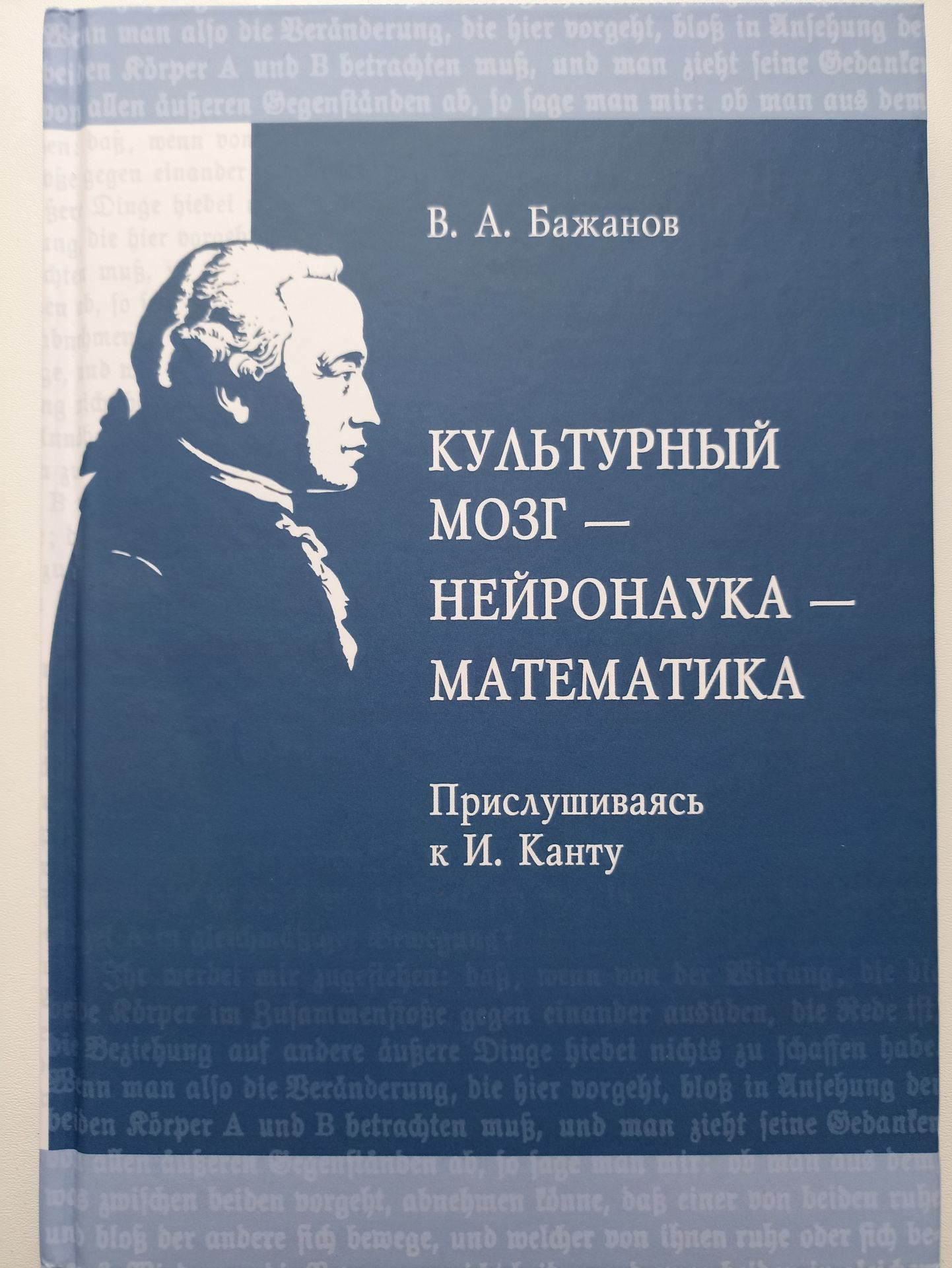
Valentin Bazhanov: Cultural Brain – Neuroscience – Mathematics.
The book considers the system "brain-culture-society" through the prism of the Kantian research program in modern neuroscience. It is shown that the interaction of the elements of this system and numerous feedbacks between them lead to the formation of a "cultural (social)" brain, whose features at the level of mass phenomena in turn predetermine certain features of culture. The intertwining of natural and sociocultural trajectories of human development, which analyzed in the context of naturalism and sociocentrism, leads to the idea of the possibility of their synthesis and the unity of the foundations of proto-mathematical, mathematical and artistic cognitive abilities. These points illustrated with examples from logic, mathematics, biology and musical creativity.
Published in 2022.
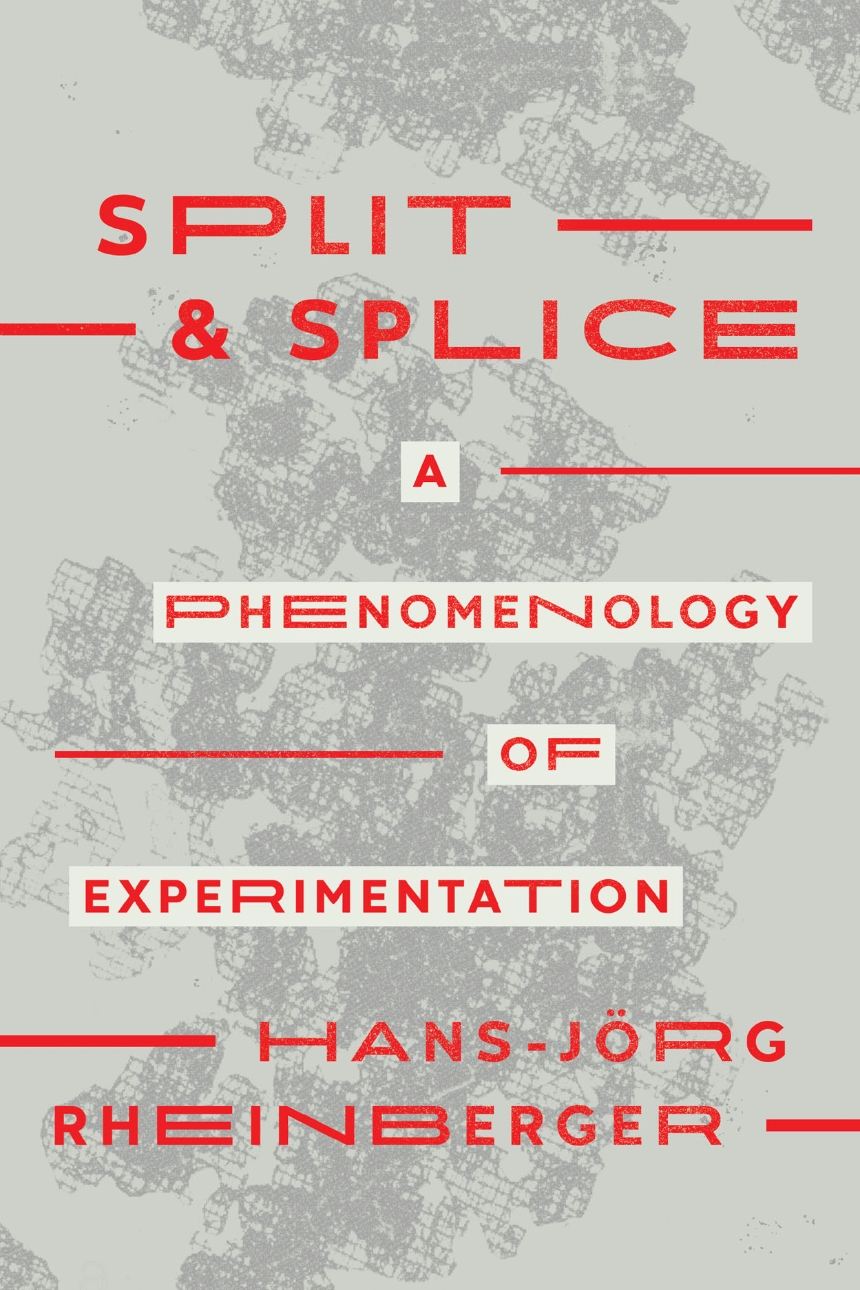
Hans-Jörg Rheinberger - Split and Splice
A Phenomenology of Experimentation
The experiment has long been seen as a test bed for theory, but in Split and Splice, Hans-Jörg Rheinberger makes the case, instead, for treating experimentation as a creative practice. His latest book provides an innovative look at the experimental protocols and connections that have made the life sciences so productive. Delving into the materiality of the experiment, the first part of the book assesses traces, models, grafting, and note-taking—the conditions that give experiments structure and make discovery possible. The second section widens its focus from micro-level laboratory processes to the temporal, spatial, and narrative links between experimental systems. Rheinberger narrates with accessible examples, most of which are drawn from molecular biology, including from the author’s laboratory notebooks from his years researching ribosomes. A critical hit when it was released in Germany, Split and Splice describes a method that involves irregular results and hit-or-miss connections—not analysis, not synthesis, but the splitting and splicing that form a scientific experiment. Building on Rheinberger’s earlier writing about science and epistemology, this book is a major achievement by one of today’s most influential theorists of scientific practice.
Published in 2023.

Interpretations of a Common World. From Antiquity to Modernity. Essays in honour of Jure Zovko
In their contributions - dedicated to the Croatian philosopher Jure Zovko - on the philosophy of antiquity, German Idealism and the 20th century, as well as on hermeneutics, the theory of knowledge and science, metaphysics and the philosophy of religion, the twenty-two authors unfold philosophy as the interpretation of a common world. In the process, it becomes clear that philosophy, even in the diversity of its voices, ultimately always remains one, just as the world as a point of reference for human action and thought is only one, which we share with each other and which we have to recognise and preserve.
Published in 2022.

